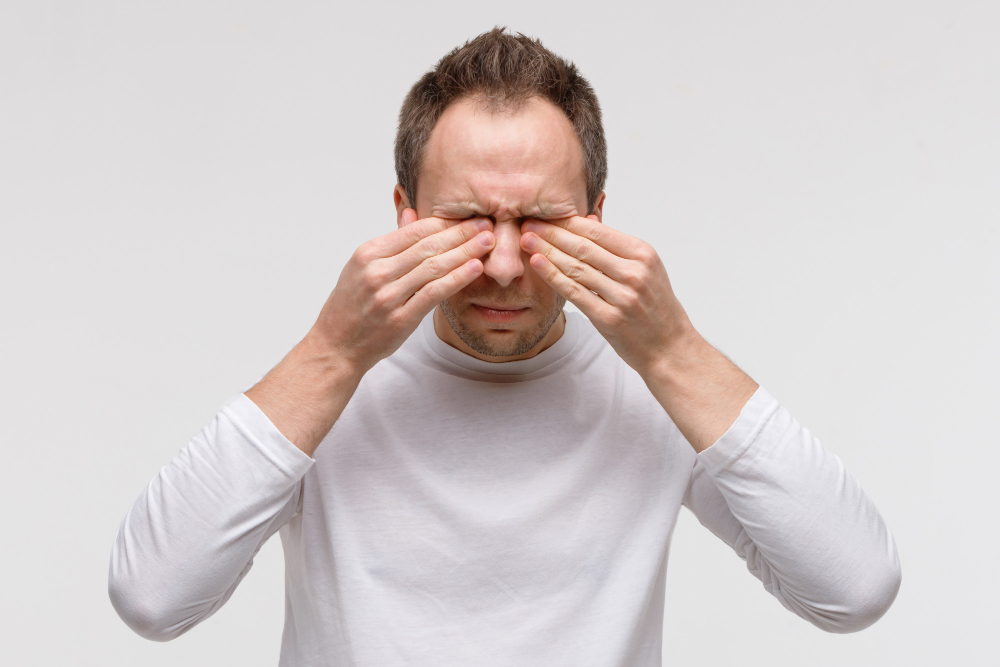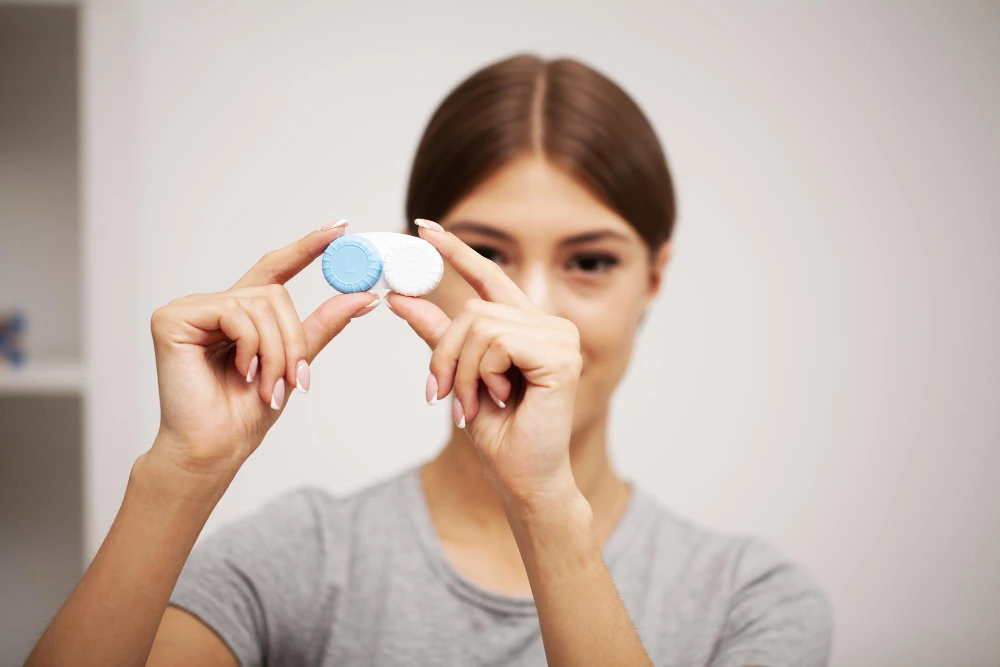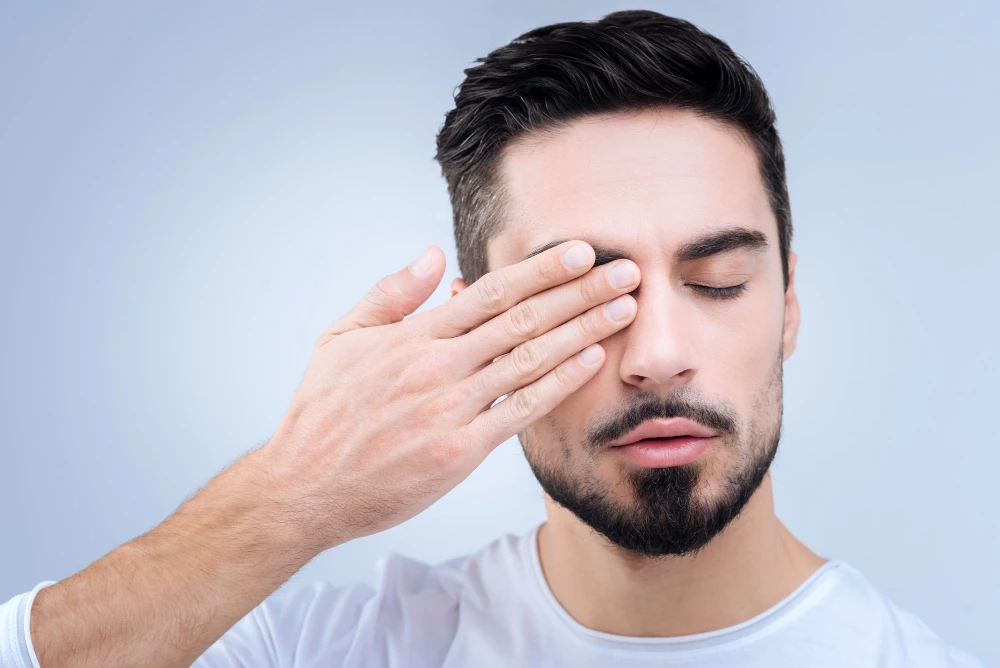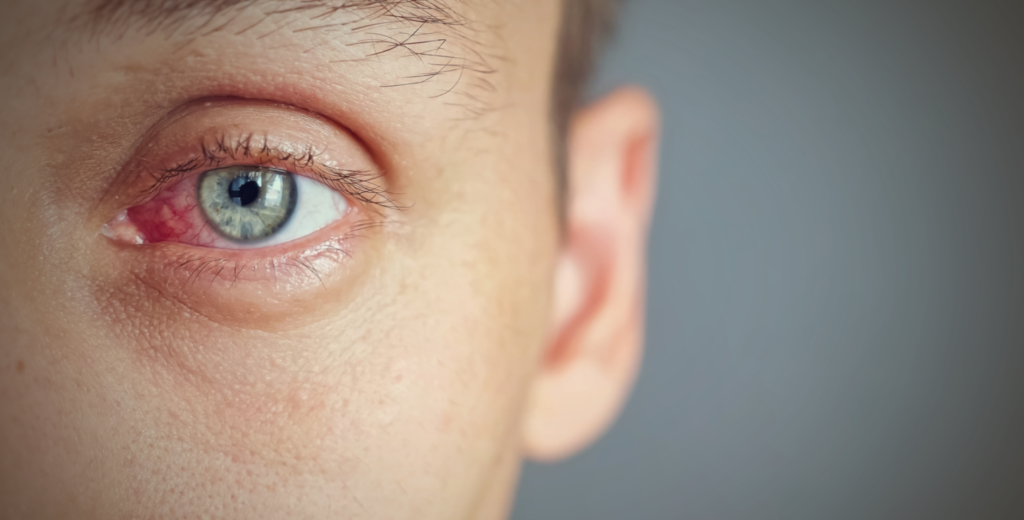Dry eyes can develop unexpectedly, leaving you with discomfort, redness, and a gritty or burning sensation. While mild dryness is something many people experience occasionally, a sudden onset can be alarming and disruptive. This rapid change may be the result of environmental conditions, lifestyle habits, or underlying medical issues. Understanding these potential triggers is key to addressing the problem before it becomes persistent or severe.
At Vision Gallery, we believe that knowing what causes dry eyes all of a sudden empowers patients to take fast, effective action. By identifying whether the issue stems from allergies, environmental changes, reduced blinking, or health conditions, you can choose the right dry eye treatment path. With proper care, most cases of sudden dryness can be managed successfully, allowing you to protect your vision and maintain lasting eye comfort.
Dry Eyes: Understanding the Condition
Dry eye syndrome occurs when your eyes don’t produce enough tears or when tears evaporate too quickly. Tears are essential for keeping the eyes moist, nourished, and free of debris. When the tear film becomes unstable, symptoms like stinging, burning, redness, or blurred vision can appear. While some people experience chronic dryness, others notice it suddenly, often linked to specific triggers. Understanding the nature of dry eyes helps in recognizing the signs early and taking preventive steps.
Causes of Dry Eyes All of a Sudden
Sudden dry eyes can result from a variety of triggers, ranging from environmental changes to medical conditions. Unlike chronic dry eye, which develops gradually, a sudden onset often points to a specific factor disrupting the balance of the tear film. These causes may include allergies, reduced blinking, medication side effects, or even hormonal shifts. Identifying the exact trigger is essential to finding effective relief and preventing the condition from becoming long-term. The following sections outline the most common causes that could explain why your eyes feel dry all of a sudden.
Eye Allergies
Eye allergies happen when your immune system reacts to allergens such as pollen, dust, or pet dander. These reactions can lead to sudden inflammation, which disrupts tear production and results in dryness. Allergic responses can also make your eyes itchy and watery, creating a cycle of irritation. Even indoor triggers like scented candles, cleaning chemicals, or cigarette smoke can provoke a quick onset of symptoms. By identifying and avoiding these allergens, you can significantly reduce your risk of sudden dry eyes.
Common allergy triggers include:
- Pollen and Dust Mites: Seasonal and indoor allergens that reduce tear quality.
- Pet Dander: Microscopic skin flakes from pets can quickly irritate your eyes.
- Perfumes and Smoke: Strong scents and pollutants can worsen eye dryness instantly.
Environmental Factors
Your surroundings can directly affect how quickly your eyes lose moisture. Low humidity, temperature changes, and strong airflow can cause tears to evaporate rapidly, leading to sudden dryness. Even activities like driving with the windows down or sitting near an air conditioner can trigger symptoms within minutes. Urban environments with high pollution levels can also expose your eyes to irritants that disrupt the tear film. Taking steps to control your environment can help prevent unexpected episodes of dryness.
Environmental triggers include:
- Low Humidity: Heating systems and air conditioners dry out the air.
- Wind or Airflow: Fans, open windows, and outdoor breezes speed up tear evaporation.
- Air Pollution: Dust, smog, and fumes can irritate your eyes quickly.
Lack of Blinking
Blinking plays a crucial role in keeping your eyes moist and protected. When you blink less often, the tear film does not spread evenly, causing moisture to evaporate. Activities that require intense focus, like reading, driving, or working on a computer, can reduce your blinking rate by up to half. This reduction can lead to sudden dry eyes, even in otherwise healthy individuals. Taking regular breaks and practicing conscious blinking can make a big difference in preventing this issue.
Causes of reduced blinking include:
- Prolonged Screen Time: Extended computer or phone use lowers blink rate.
- Driving for Long Periods: Concentrating on the road can delay blinks.
- Reading Without Breaks: Continuous focus limits tear replenishment.
Eye Infections and Inflammation
Eye infections and inflammatory conditions can quickly alter tear production. Blepharitis, which is inflammation of the eyelids, can block oil glands and reduce tear quality. Conjunctivitis, whether viral or bacterial, can cause swelling that interferes with natural lubrication. Meibomian gland dysfunction (MGD) also impacts the tear film’s oil layer, causing rapid evaporation. Treating these conditions early can prevent sudden and recurring dryness.
Hormonal Changes
Hormonal imbalances can directly affect tear production and quality. Women experiencing menopause often notice dry eyes due to decreased estrogen levels. Pregnancy and the use of certain birth control pills can also temporarily disrupt the tear film. Thyroid disorders are another hormonal condition that may impact eye moisture levels. Identifying and managing these changes can help reduce sudden dryness.
Medications
Many prescription and over-the-counter drugs list dry eyes as a side effect. Antihistamines and decongestants, commonly used for allergies and colds, can dry out mucous membranes, including the eyes. Antidepressants and certain blood pressure medications may also reduce tear production. The onset of dryness can happen quickly after starting a new medication. Always discuss side effects with your doctor if you notice sudden eye discomfort.
Underlying Health Conditions
Sudden dry eyes may sometimes be a symptom of a more serious condition. Autoimmune diseases such as lupus, rheumatoid arthritis, and Sjögren’s syndrome can impair tear production. Diabetes can damage the nerves that control tear secretion, leading to sudden dryness. Even a vitamin A deficiency can reduce tear film health. Early detection of these issues can help preserve eye comfort and function.
When to See an Eye Doctor
If your eyes feel dry for several days or your symptoms are worsening, it’s important to get a professional evaluation. Warning signs like eye pain, redness, blurred vision, or excessive tearing could indicate a more serious underlying condition. An eye exam can reveal whether your dryness is caused by environmental, medical, or lifestyle factors. Early intervention can prevent complications such as corneal damage or chronic dry eye syndrome. At Vision Gallery, we use advanced diagnostic tools to pinpoint the exact cause and recommend the most effective treatment.
Treatment and Prevention
Managing sudden dry eyes involves addressing both the symptoms and the root cause. Artificial tears and lubricating eye drops can provide quick relief by restoring moisture to the eyes. Warm compresses and eyelid massages can improve gland function and tear quality. For those affected by environmental factors, using a humidifier and wearing protective eyewear outdoors can help. At Vision Gallery, we tailor treatment plans to each patient’s unique needs, ensuring lasting comfort and healthier eyes.
Taking Care of Your Eyes
Knowing what causes dry eyes all of a sudden is the first step in protecting your vision and comfort. By paying attention to triggers such as allergies, environment, and screen use, you can reduce the likelihood of sudden dryness. Preventive measures, regular eye exams, and early treatment ensure that your eyes stay healthy over the long term. At Vision Gallery, we are committed to helping you enjoy clear, comfortable vision with personalized care and advanced eye health solutions.





